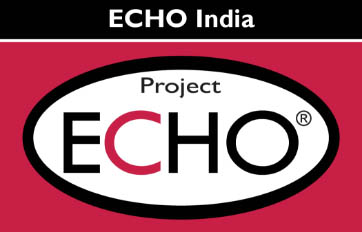Each day at the Urban Primary Health Centre in Washim, Maharashtra, brings a steady flow of patients seeking answers to complex health problems. For Dr. Digambar Dhole, meeting those needs now feels more precise and purposeful. Through ECHO India’s Cardiometabolic Syndrome (CMS) training, he has honed his clinical judgment and strengthened his confidence in managing chronic conditions.
At the Urban Primary Health Centre in Washim, Maharashtra, a powerful change is quietly unfolding. Amid a steady stream of OPD visits and community health duties, Dr Digambar Dhole is redefining what effective primary care looks like. His tools are not advanced machines or expensive tests, but sharpened clinical judgment and renewed confidence built through ECHO India’s Cardiometabolic Syndrome (CMS) training.
Dr. Dhole had long aspired to participate in a structured learning program that could enhance his diagnostic skills. He had expressed this interest to his superiors, requesting to be considered for any upcoming training. With ECHO India’s CMS Program, that opportunity finally arrived, marking a turning point in his medical journey.
From Learning to Real-life Impact
The CMS sessions, conducted by ECHO India in partnership with experts from Nagpur, were unlike any typical workshops. They focused on case-based discussions, interactive problem solving and practical approaches to managing cardiometabolic risks. “They didn’t just lecture, they asked many questions, about real patient cases, diagnostic reasoning, and how to approach cardiometabolic risks comprehensively”, he says.
That learning was soon put to test when a relative presented with concerning symptoms. Dr. Dhole applied his new learnings, he suspected metabolic syndrome, examined him and referred him to a cardiologist. The diagnosis was later confirmed. “I felt proud to know that my suspicion turned out to be correct. That experience strengthened my belief in what I had learned during the program.”
Sharper Diagnosis, Better Care
Before the training, hypertension and diabetes were often treated as independent issues, but now he approaches each case more holistically. “Earlier, if someone had hypertension or high BP I would directly give them a tablet. But now, I think more broadly before prescribing. I think of underlying causes and possible links to cardiometabolic syndrome.” says Dr Dhole.
This shift, from reactive prescribing to proactive assessment, is the essence of the ECHO model. He has now become more intentional about patient counselling. He now focuses on identifying root causes, recognizing underlying conditions and using lifestyle counselling as a first step. “I tell them to eat less oily food, exercise more and avoid alcohol. Earlier I used to say this casually, now I understand why it matters and the long-term benefit behind every suggestion.” he explains.
Recognizing the Subtle Signs
Soon after Dr. Dhole encountered another patient with complaints of swelling and excessive sweating especially after travelling. Drawing from his ECHO training, he suspected congestive cardiac failure; “I referred him to a cardiologist and the diagnosis was confirmed, the timely intervention made a big difference for the patient and his family. The training made me more observant. I no longer look at symptoms in isolation.” Such moments have changed the way he practices.
For the patient’s family, Dr. Dhole’s timely diagnosis made all the difference. “He listened carefully and gave clear advice,” recalls the patient. “Because of his explanation, we understood what was happening and could take better care at home.”
Broadening Knowledge, Building Confidence
The training didn’t just refine Dr. Dhole’s diagnostic skills, it transformed how he thinks about chronic diseases. “Earlier I used to think hypertension affected only the elderly or alcoholics,” he admits. “After the training, I learned that it can affect people with kidney disease, anemia or even Chronic Obstructive Pulmonary Disease (COPD) patients. This understanding was new for me and has helped me treat patients more effectively.”
He believes that continuous case-based learning opportunities like these can transform primary care delivery. “It has boosted my confidence and helped me manage patients more effectively,” he says. Dr. Dhole believes the training should continue and expand; “If every medical officer gets such training, there will definitely be improvement,” he says.
Towards a Stronger Frontline Systems
At UPHC Washim, where doctors often serve as the first and sometimes only point of medical contact in the community, such improvements can mean the difference between prevention and crisis. What began as one doctor’s request to join a training program, has grown into a ripple of change at the grassroots level.
Through initiatives like ECHO India’ Cardiometabolic Syndrome program, frontline healthcare providers like Dr. Digambar Dhole are bridging the gap between medical expertise and community care, learning to look beyond symptoms, ensuring that every patient receives informed and timely treatment.
